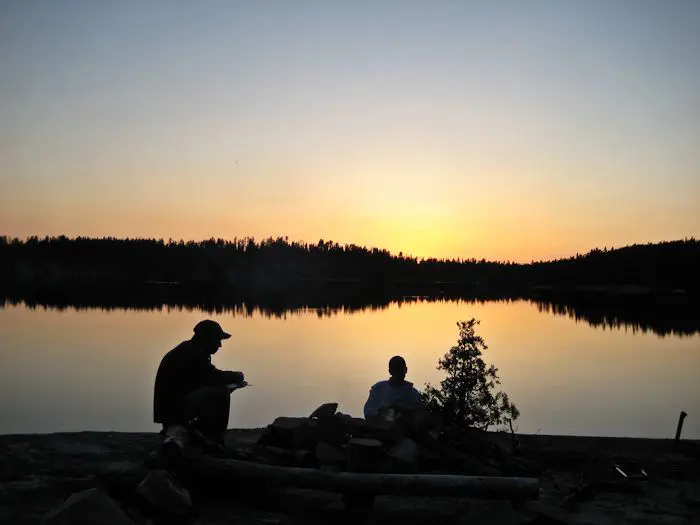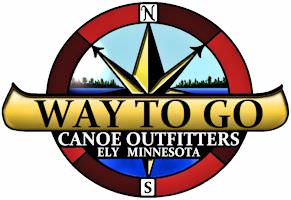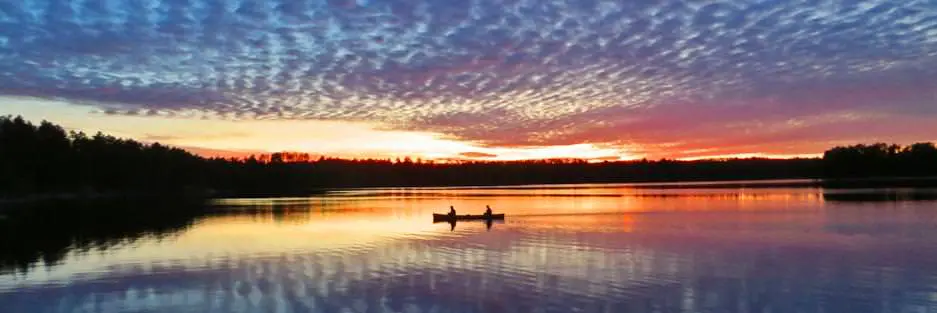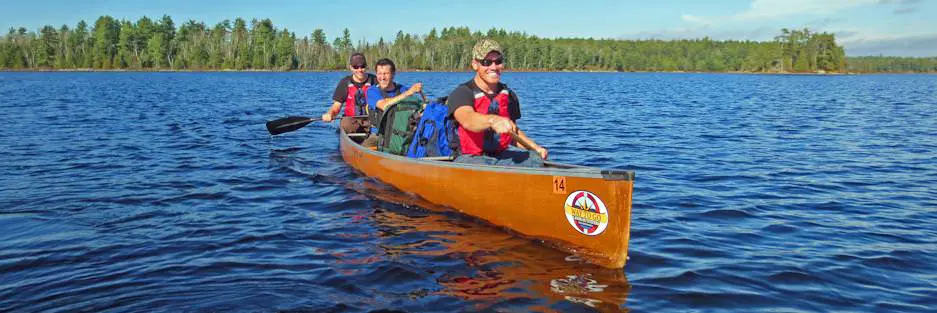BWCAW Rules & Regulations
TRAVEL PERMITS
- • You must enter the Boundary Waters Canoe Area Wilderness (BWCAW) at the entry point and on the date shown on your permit.
- • You may not enter/re-enter at a different point or date using this permit.
- • Permit and stubs become invalid when the trip leader exits the wilderness.
GROUP SIZE
- • Nine (9) people and four (4) watercraft are the maximum amount allowed gathered together in the wilderness.
- • You may not exceed this limit at any time or anywhere (on water, portages, or campsites) in the BWCAW.
- • Smaller groups enhance your wilderness experience and decrease the impacts on nature.
TOILET FACILITIES AND WATER QUALITY
- • Use latrines at designated campsites.
- • Latrines are not garbage cans and should be used for the intended purpose only. Everything else you pack in should be packed out and never put down the latrines.
- • If you are not near a latrine, dig a small hole 6 to 8 inches deep and at least 150 feet or more back from the water's edge. Fill the hole and cover with needles and leaves when finished.
- • Bathe and wash dishes at least 150 feet away from water sources (rivers, lakes, streams, marshes).
- • All soaps pollute water, including soap marked as "biodegradable".
CONTAINERS
- • Cans and glass bottles are not allowed.
- • Fuel, insect repellent, medicines, personal toilet articles, and items other than food and beverages may be kept in their original containers.
- • Food may be packaged into plastic containers, which must be packed out at the end of the trip.
FOOD, FISH REMAINS, AND LIVE BAIT
- • Try to plan your meals so you don't have leftovers. If you do, pack them out.
- • Dispose of fish remains by traveling well away from shorelines, campsites, trails, and portages.
- • Pack out live bait and other food leftovers at the end of the trip.
CAMPFIRES
- • Fires are allowed within the steel fire grates at designated campsites unless campfire restrictions are in place. If there are restrictions you may be required to use a camp stove.
- • Bringing a small camp stove may be a better idea as it heats food quickly, has less impact than a fire, and comes in handy during rainy weather.
- • When making a fire, use only dead wood found lying on the ground; collect it away from campsites, portages, and shorelines to prevent enlarging and defacing these areas.
- • Transporting wood from home or out of state is prohibited.
- • It is illegal to cut live vegetation for any reason.
- • It is also illegal to burn trash, make sure it is packed out with you.
- • Drown your fire with water anytime you are going to be away from camp or at bedtime. Stir the ashes until they are cold to touch with a bare hand.
CAMPSITES
- • Camp only at Forest Service designated campsites that have steel fire grates and wilderness latrines.
- • You may camp up to fourteen (14) consecutive days on a specific site.
- • All members of a permit group must camp together at one site.
- • Make camp early in the day to ensure finding an available campsite.
- • It is illegal to cut live vegetation for any reason.
- • After you break camp check to make sure everything is packed up and your campsite is clear of litter.
STORING WATERCRAFT
- • Only watercraft and equipment used in connection with your current visit may be stored and left unattended, until you leave the BWCAW.
- • All equipment and personal property must be carried out with you at the end of you trip.
CULTURAL HERITAGE
- • Leave archaeological, historical, and rock painting sites undisturbed.
- • The use of metal detectors in prohibited in the Wilderness.
PETS IN THE BWCAW
- • Dogs impact wildlife and barking intrudes on the experience of others. They must be under control at all times.
- • Dispose of fecal matter 150 feet away from water sources, campsites, portages, or deposit in a latrine.
FIREARMS AND FIREWORKS
- • Discharging a firearm is prohibited within 150 yards of a campsite, occupied area, and in a manner or location that places people and their property at risk or danger.
- • State game laws apply in the BWCAW.
- • Fireworks of any kind are illegal.
FIREARMS AND FIREWORKS
- • Motorized watercraft meeting specific horsepower limitations are allowed on designated routes and lakes only. No other motorized or mechanical equipment (including pontoon boats, sailboats, ATV'S, sailboards, etc) is allowed. Motors may not be used or in possession on any paddle-only lake. Portage wheels or mechanical assistance are only permitted over the following areas: International Boundary, Four-Mile Portage, Fall-Newton-Pipestone and Back Bay Portages into Basswood Lake, Prairie Portage, and Vermilion-Trout Lake Portage.
LAKES WITH 25 HORSEPOWER LIMIT
On these lakes or portions of these lakes, the possession of one additional motor no greater than 10 horsepower is permitted, as long as motors in use do not exceed 25 horsepower:
- Basswood (except that portion north of Jackfish Bay and Washington Island), Saganaga (except that portion west of American Point), Fall, Newton, Moose, Newfound, Sucker, Snowbank, East Bearskin, South Farm, Trout
PORTAGE WHEELS
Mechanical assistance is only permitted over the following: International Boundary, Four-Mile Portage, Fall-Newton-Pipestone and Back Bay Portages into Basswood Lake, Prairie Portage, Vermilion-Trout Lake Portage.
-All of the above are enforceable United States Forest Service regulations-
Remember to Leave No Trace while traveling through the Boundary Waters Canoe Area Wilderness in order to protect this special place for future generations







